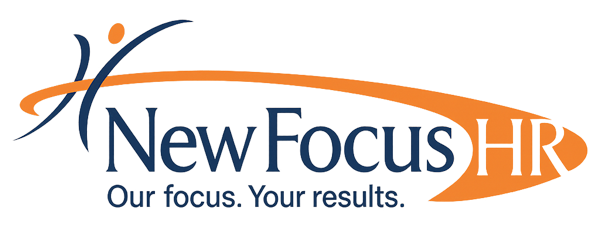Navigating Holidays in the Workplace: A Guide for Employers
Holidays are a time of joy, celebration, and togetherness, but for employers they may also present a unique set of challenges in the workplace. Balancing the festive spirit with the responsibilities of running a business may be a delicate task, and that’s why it’s crucial for employers to consider some key factors when navigating holidays in the workplace. This article aims to provide a comprehensive guide to help employers foster a positive, inclusive, and productive work environment during the holiday season.
Employer-Sponsored Holiday Events
Creating an employer-sponsored holiday event or party that fosters deeper camaraderie among employees while steering clear of potential liabilities requires thoughtful planning and consideration. Here are some essential guidelines to keep in mind:
- Attendance: If attendance is required, or even “strongly encouraged,” or if employees are required to help set up the event, it will likely be necessary to pay nonexempt employees for their time attending the event. Emphasizing that the event is truly optional may help avoid the potential for required employee participation, thus having to compensate nonexempt employees for their time at the event. Furthermore, making the event optional may reduce liability in many other areas as well since many employment laws do not apply to truly voluntarily attended social events.
- Offsite vs. Onsite Venue and Activity Selection: Choose a venue that is easily accessible for all employees, considering factors like location, transportation, and parking. Safety should be a top priority. There are also potential benefits to hosting an event offsite since some of the liability may be shared with that venue. It may also be a good idea to check with the organization’s insurance carrier to see if there are any other considerations to weigh when choosing the venue and activity for the event.
- Clear Expectations: In advance, communicate clear expectations to all employees regarding their behavior at the event. Remind them that organization standards for professionalism and respect still apply during the celebration. It may even be prudent, in some situations, to consider creating a waiver for employees to sign prior to attending the event.
- Alcohol Policies: If alcohol is served at the event, establish clear policies that promote responsible drinking. Having a cash bar or limiting drinks per employee may help avoid inadvertently encouraging overconsumption. Encourage employees to enjoy themselves in moderation and provide alternatives like non-alcoholic beverages to cater to all preferences.
- Dietary Considerations: Cater to dietary restrictions and preferences when planning the menu, offering a variety of food options to accommodate all employees, including those with special dietary needs.
- Transportation Options: To ensure safety, offer transportation options for employees who may have consumed alcohol. This may include shuttle services or reimbursing ride-sharing services, thus promoting responsible choices.
Communication and Effective Planning
Clear communication is vital when it comes to managing holiday-related issues in the workplace. Employers should establish a holiday policy that outlines expectations and time-off procedures. Employers should also set guidelines and expectations for holiday-related events or activities to ensure that they are appropriate while avoiding any appearance of favoring one employee over another.
To help ensure that employees are well-informed about the organization’s expectations and that those expectations address the necessary considerations, consider the following:
- Encourage employees to request time off in advance to avoid scheduling conflicts.
- Plan for staff coverage and workload distribution during peak holiday periods.
- Create a holiday schedule that strives to accommodate employees’ time-off requests while ensuring business operations continue smoothly.
- Offer flexible time-off policies so employees may take time for their own holidays.
- For holiday-related events and activities, encourage employees to participate voluntarily.
- If hosting a gift exchange, set a reasonable budget for gift exchanges to avoid financial strain.
Inclusivity and Diversity
One of the most important considerations for employers during the holiday season is ensuring that the workplace remains inclusive and respectful of all employees’ beliefs and traditions. It’s important to recognize that not everyone celebrates the same holidays or observes them in the same way. While acknowledging and celebrating common holidays like New Year’s is perfectly fine, employers must be aware of the diverse backgrounds and cultures within their workforce.
To promote inclusivity:
- Encourage employees to participate in decorating the workspace to foster a sense of unity.
- Consider hosting events that celebrate the season as a whole, rather than a specific holiday.
- Use non-religious, seasonal decorations that are neutral and/or embrace a variety of holidays.
- Be open to feedback from employees if any decorations make them uncomfortable.
Summary
Holidays in the workplace may be a time of bonding and celebration, but they require careful consideration to maintain a safe, positive, and inclusive environment. Employers and managers play a crucial role in ensuring that the holiday season is a time of unity and shared joy among employees.
By thoughtfully planning holiday gifts and events, communicating effectively, and embracing diversity, employers may navigate the holiday season successfully. The result will be a workplace that fosters camaraderie, enhances employee morale, and ultimately, boosts productivity.
Remember, the holiday season offers a unique opportunity to strengthen the bonds among employees, and with the right approach, employers may make it a special and memorable time. By navigating holidays in the workplace with these considerations in mind, the whole organization will be well on the way to creating a harmonious and festive atmosphere for all.
For additional information regarding holidays in the workplace, please read our previously published article titled, “Holidays and the Workplace: Proactive Planning for the Best Possible Outcomes” (click here), by Kathi Walker, SHRM-SCP, PHR, or contact us at NewFocusHR.com.
Updated by: Jason Love, SHRM-CP, CLSSGB
HR Consultant
12/18/2023
Sources:



